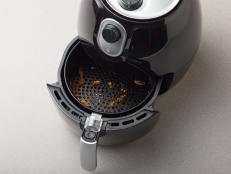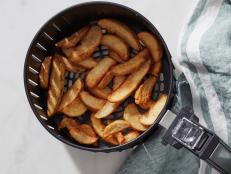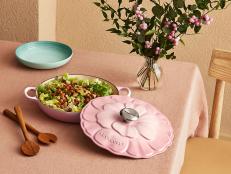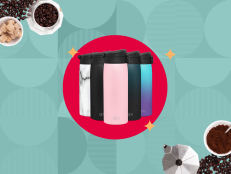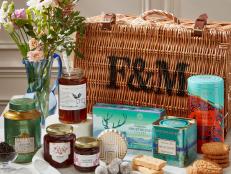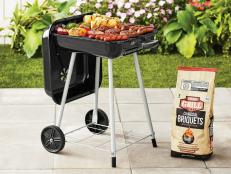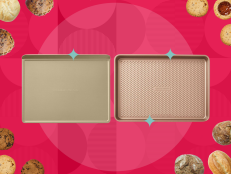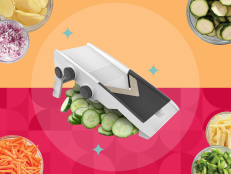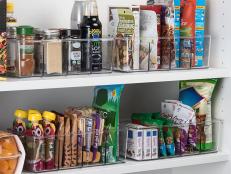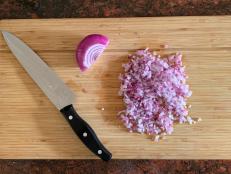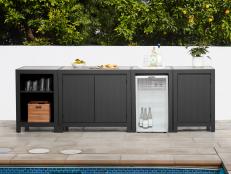Avoid These 7 Common Composting Mistakes
So, you started composting at home. Here’s how to do it right.

Johner Images/Getty
No doubt about it, composting at home is a good thing. The finished product can enrich soil quality, and keeping food scraps out of landfills can lessen the greenhouse gasses that get emitted when biodegradable waste breaks down anaerobically (a.k.a. without proper air flow).
That said, many compost beginners aren’t totally clear on best practices. Although composting isn’t hard once you get the hang of it, there are certain mistakes that can hurt your compost pile, or make the process more difficult. We asked experts to share the composting mistakes they see most often, as well as what to do instead.

Daisy-Daisy/Getty
You’re Letting Your Compost Get Too Wet or Too Dry
In order to properly break down, your compost pile needs to be moist but not soaking wet. “If the pile becomes too wet, the mix will become less aerated and you may find that your compost piles will start to stink,” says Kassandra Flores, a North Dakota-based small space gardener and consultant at Juliei Salone. She also explains that too much moisture can have different impacts depending on what method of composting you’re using. If you’re using worms, they might drown; if you’re composting in the ground, too much water can actually leech nutrients from your compost and from the soil. “To prevent this, make sure to cover the compost during heavy rains or rain that lasts a long time,” Flores says.
Not enough moisture can also be an issue. “If your pile becomes too dry, you'll notice that the rate of decomposition will slow down a lot,” Flores says. “Decomposition relies on living organisms, and they need water to live.” She suggests adding some water to dry compost piles, plus a thick layer of mulch to slow down the rate of moisture loss. Putting compost piles in a partially shaded spot, instead of in direct sunlight, can also help.
You’re Composting Meat, Fish, Eggs or Dairy Products
Although it might feel tempting to throw meat, fish, eggs and dairy scraps into your compost bin, the Environmental Protection Agency (EPA) warns against this. These animal proteins take much longer to break down than plant foods and can cause an unwanted odor. One exception to this might be eggshells, which some folks recommend composting since they add calcium to the soil. That said, you should thoroughly rinse the eggshells first.
It’s also important to avoid composting human and animal waste at home, says Stan Miklis Caliper, a Texas-based horticulturist. Waste often contains high levels of heavy metals that can transfer from compost to crops and have a negative impact on human health, says
You’re Not Alternating Layers of Browns and Greens
“Ideally, your compost pile should be made up of alternating layers to allow oxygen to circulate through the pile,” says Adam Kay, technical director at Tyler Packaging, a sustainable materials company. “There are two types of materials that can be composted – green materials (nitrogen-rich) and brown materials (carbon-rich).” Brown materials include twigs and sticks, while green materials are leaves and food scraps. “When you’re starting your compost pile or bin, start with a layer of twigs and sticks, followed by a layer of leaves,” Kay says. “This will allow for good drainage from your compost.” Plus, without enough brown material (which tends to be drier), the green material can start to rot. As you continue to add food scraps, make sure to add a layer of brown materials every so often. And, Kay says, when you’re adding new layers, mix them in with the old ones to help the decomposition process.
You’re Not Composting Enough
“One mistake I see often is not using the compost pit enough,” says Stefan Bucur, a home and garden expert and co-author of The Rhythm of Home blog. “Recycling organic matter takes time and plenty of organic resources, and if the microorganisms in the soil do not get the required nutrients, the whole composting process cannot go on.”
To make sure your compost has what it needs to keep on decomposing, be sure to add all of your plant-based food scraps, and don’t forget to throw in layers of brown materials (sticks and twigs) as well as extra green materials like leaves. You should be adding new material once per week at minimum.
You’re Using Worms When You Don’t Have To
If you don’t have outdoor space and indoor composting is your only option, using worms to help break down the materials can be a good option. But if you have an outdoor compost pile, experts say that worms really aren’t necessary and can actually throw things off.
“People like to help nature out, and think they can speed up the process of composting by adding worms to their compost,” says Joyce De Smet, co-CEO and sustainability expert at Ecotel Consultancy. “Although this seems like a great idea, it actually is not. It messes with the natural ratio of worms in the compost.” She recommends skipping the added worms — if you’re composting outside, some worms will make their way in anyway — and just letting nature do its thing on its own time.
You’re Not “Turning the Pile”
For optimal composting, some care and attention are required. “Many people create a compost pile and just let it sit there,” says Josh Tesolin, co-founder of RusticWise, a home, garden and lifestyle site. “To help your compost break down more quickly, it's important to keep turning the pile frequently (at least once a week or more).” If you have a tumbling compost bin, you can do this easily by simply turning the compost often. If your compost is in the ground, you can take a shovel or heavy-duty rake and toss everything up. “Not only does this break down large clumps of organic matter, it also aerates the pile, and oxygen is a vital part of the composting process,” Tesolin says.
You’re Composting Compostable Packaging at Home
“One common mistake home composters often make is to think that anything that says compostable on it can be composted at home,” says Antoine Ambert, senior director of sustainability and innovation at Alter Eco. “Most cutlery and food containers now used by restaurants, as well as some food packaging in grocery stores, are labeled compostable but would only disintegrate in a facility with controlled (high) temperature and humidity.” In other words, they may technically be compostable, but they won’t break down in your backyard pile.
Instead of composting these items yourself, the EPA recommends contacting your local waste and recycling program and asking where you can drop these items off.
Related Content:





























